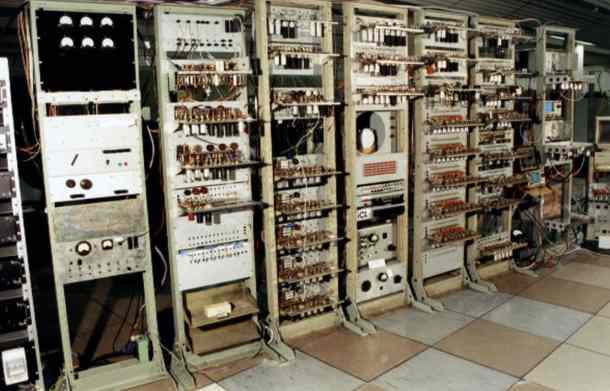| Google Celebrates Baby's 65 Years |
| Written by Historian | |||
| Friday, 21 June 2013 | |||
|
It is 65 years since the Manchester Small Scale Experimental Machine, Baby, made its first successful run of a program on June 21st 1948. To mark this anniversary, Google has produced a short video. Manchester was one of the three main UK centres of early computer development - the others were Cambridge and the National Physical Laboratory (NPL) at Teddington. Even though Maurice Wilkes and the Cambridge team built the first full size working stored computer (EDSAC), Manchester got its or Small Scale Experimental Machine going first and so it can claim the title of “first working stored program computer” and also to be the computer that marked a new computing era, described by some as the birth of software. Baby was intended as a testbed for the Williams (or Williams-Kilburn) Tube, a digital storage system based on the use of a single cathode ray tube that was able to store up to 1,024 bits, that was based on radar and communications technology that Freddie Williams and Tom Kilburn had helped to develop during World War II. While it certainly deserved being considered "experimental" it was by no means "small scale" being 7 ft 4 in (2.26 m) tall and 17 feet (5.23 m) length and weighing 1 tonne.
A replica of the Baby was built for its 50th anniversary and re-ran its original first stored program on June 21st, 1998. The replica now runs every Tuesday, Wednesday and Thursday at the Manchester Mueum of Science & Industry. Google's video shows it the replica Baby in action, together with photographs of the original. The story is told by computer historian Professor Simon Lavington and Chris Burton, Project Leader the Computer Conservation Society's project to build the replica Baby. It also features sound clips of both Williams and Kilburn plus a new interview with Geoff Tootill, the third member of its original team.
The video points out the Baby was just the beginning. It led directly to the Manchester Mark 1, which led in turn to the world's first commerical computer the Ferranti Mark 1. See From Baby to Mark I if you want to know more about the history these early computers. Related ArticlesManchester Computers of the 1950s LoveLetters Wins Tony Sale Award
Alan Turing and His Contemporaries (book review) To be informed about new articles on I Programmer, install the I Programmer Toolbar, subscribe to the RSS feed, follow us on, Twitter, Facebook, Google+ or Linkedin, or sign up for our weekly newsletter.
Comments
or email your comment to: comments@i-programmer.info
|
|||
| Last Updated ( Saturday, 22 June 2013 ) |


